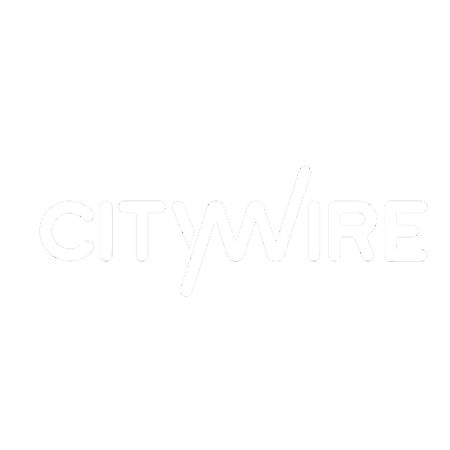June 20-27 2016
Meet the fellows!
On Sunday, June 19th, we kicked off our São Paulo fellowship program with these 16 emerging leaders, creative rebels and change agents, joining us from 8 countries!
KALINA JUZWIAK
Curious, creative, explorer, artist, designer, illustrator. those are the main things that define me, but not necessarily in that order or with those labels. I am working on different projects that involve my multidisciplinary layers. since 2013 i lead a studio called kaju.ink, which is mainly focused on personal branding - which I call identiting. my artsy side takes me to creating patterns, painting walls and canvas'. the studio and the artistic projects often cross paths and projects with other creative minds. I have a blog, called comTijolo, which goes around subjects such as performance, entrepreneurship, sustainability, reuse of materials, design, and a balance between mind and body, talking about holistic habits. I am also engaged in some horizontal projects, movements and companies, always using my organizational and creative skills to tell visual stories Website
VALENTINA FERRARI
Is a product designer who is chronically unsatisfied with how systems and things work. She is very optimistic as to how design can improve processes in our society in a way to create better experiences and a higher life quality. Valentina is currently working with packaging design. @valenferrari
GIULIANNA LOUIS
Born in Brazil, but grew up in Switzerland, and had a global education. Ever heard of third-culture kids? Well, I’m one of them. Now I curate beautiful images and brands for a living. Always value great aesthetics, and am very lucky to be able to create some interesting stuff in the process. At my core I'm a curious and creative person, very energetic and extremely organized, who believes that understanding our culture can offer socio-economic alternatives within it. Website
Matheus Pinheiro de Oliveira e Silva
Graduated in Bachelor of Tourism but followed his heart on social entrepreneur. Co-founder of the social project called Meraki Group which aims to empower and develop leadership, communication and empathy on GenY. Founder and writer of inRoutes travel blog, a project which gained life after his 1-year learning experience in senior high school in Indonesia by Rotary International and 3 months volunteering in India. He is an agent of change of World Merit and Head of Communications in World Merti Brazil. Co-organized the first Startup Weekend Change Maker in a poor neighborhood in Guarulhos. Passionate by social impact he studied and holds certifications in social entrepreneurship, design thinking, business model, theory U, human-centered design, social innovation, leadership, interpersonal intelligence and effective communication by Stanford University, MIT, Acumen, UCLA, Artemisia, Mastermind and Clinton Center for Teaching and Learning. Linkedin | Project | @ma_tai
ISABEL CHENDER
I have trained extensively in the tools of authentic engagement and the use of graphic language to illuminate and apply them in my work as a social/ environmental consultant and graphic facilitator. I work in both the international community development and public engagement/social innovation sectors; social and environmental sustainability is the unifying theme. I’ve lived in Guyana, Chile, and Ecuador working in project design, execution and evaluation to support community-led health, language, and environmental sustainability awareness and education. In Canada, my experience as a community engagement strategist led to work across sectors to create a movement across Nova Scotia towards a culture of self-reliance and collaboration. Right now I’m living in Brazil to pioneer a project in the Amazon rainforest to combine alternative methods for social change with community-led development to train sustainability leaders. You’re already a relative of mine if you’re part of the MSLS, Art of Hosting, Deep Democracy, ALiA institute, systems thinking, the natural step, and complexity science networks/communities. Likedin | Project
Natália Franzon Catarino
I am an enthusiast of the creative economy. My work transits between design, communication, management, art and entrepreneurship. I’m passionate about new ways for business models and education systems, and found in Design Thinking a route to make that change. I founded a creative lab in Londrina - Paraná - Brazil where I was born and raised. The Look Up - Creative Lab is a place to empower people with entrepreneurial mindset, creative tools and self-knowledge through immersions, workshops and courses based on collaboration and experience learning. I’m graduated in advertising and specialized in sales management, but found my real passion after an executive program in Hivelab, where Design Thinking really changed my way of thinking and the course of my career. Linkedin | Website
Thessa Bos
A non-native to South Africa, Thessa traveled, lived and worked in three different continents before arriving in Cape Town ten years ago. With degrees in journalism, international relations and business, an insatiable curiosity coupled with an innate affinity with connecting to people; Thessa embarked on a career in journalism, policy and project management. Driven by her passion for design and motivation to contribute to the local economy, Thessa co-founded KIN in January 2010 to change the world - beginning with the business of art, craft and design in South Africa. In 2013, Thessa was offered the irresistible opportunity to coordinate the Dutch Embassy's World Design Capital 2014 program, and build relationships between Dutch and South African design and innovation. She is currently the Deputy Consul General at the Netherlands Consulate General in Cape Town. Website
Aziz Camali
Since 2008 I play with design, strategy and love in my company, DZN here in Brazil. Since I realize and decided to be an unspecialist, I started a different and transdisciplinary way to learn, create and implement my career and self-evolution, trying to redefine business and education models, and people´s life perspective, starting with mine. Website
São Paulo, Day 1
June 20, 2016
Yesterday we kicked off our 4th emerging leaders fellowship in São Paulo! The adventure started out in the very cool district of Vila Madelena, at Batmans Alley, an open gallery whose walls artists have been adorning since the 1960’s.
Our powerhouse team (who, from the looks of it could also make it as an indie band if this week doesn’t work out), set up camp there, waiting to greet our 16 fellows as they arrived from 8 different parts of the globe.
From left to right: Leticia, Sara, Arturo, Regina, Leyla and our super host, Luisa
After a brief chat about word preferences between poo, poop and cocô, we started off with the one legged stand game, which is becoming an UnSchool tradition. Through it we learned a bit about everyone in the group, and tested our endurance. Our fellows impressed us with their memory skills, especially Victor, who went last and didn't break a sweat as he recalled the names and facts of all 20 of us (fellows + team). He didn’t even confuse our host Luisa and her co-host Leticia, who coincidentally both came dressed as cheese-loving mimes!
We then walked over to Ecobeco, to visit a group of architect entrepreneurs. They outfitted a house with sleek sustainable design solutions, and showed us a drool-worthy example of urban eco-living. We received a tour from one of the founders, Rafael Miranda (also founder of Ecoeficientes), who gave us the scoop on some of the cool designs-- garden beds that can survive 3 weeks without water due to clay beads in the base, solar powered ovens, tetra pak walls that made up the side of his office, and more! It was like exploring an engineer’s secret eco-wonderland full of solutions for the future.
Next, we headed to the newly-opened Casa Madalena, the headquarters for Yunus Social Business. It isn’t a co-working space, but rather a house designed to accelerate purpose driving companies. There, we jumped right into our rapid getting-to-know-you 3 minute Pecha Kucha’s (our full team even got up to do it!).
Each Pecha Kucha blew us away in one way or another, with incredible storytelling, personal journeys and slick design left, right and center. We got inspired by fellows’ projects and experiences, laughed as some of them showed us their adorable childhood photos and funky hairstyles, and we even shed a few sneaky tears as Regina told a story about how her spirit animal was a sloth which has grown wings and is about to fly!
(What? Sloths can fly? Not typically. But watch this space, because this sloth is going to soar!)
After sharing our journeys of how we ended up in Sao Paulo together, we took a brief break to prepare ourselves for our first dose of knowledge transfer. Our epic powerhouse founder, Leyla, started off the learning journey by giving us her brain-stimulating introduction to sustainability. You could literally see the synaptic changes start to occur, as the fellows learned that biodegradable cornstarch cups aren’t actually more “sustainable” than plastic cups (BOOM). Leyla also walked through what sustainability is (hint: it’s not about being a tree hugging hippie) and busted some of the dominant myths around sustainability:
Biodegradable is best?
Humans act rationally?
Packaging is bad?
Sustainability costs more?
One insanely fit fellow, Caroline, realized how “blind” she has been about the way the world works, but Leyla assured her it was okay because it’s not a permanent form of blindness and because that's what the UnSchool is all about: pulling the rug from under you and providing you with a new lens of seeing the world!
After getting unschooled on sustainability, we went off to a local bar to share food and some much appreciated wind-down drinks to relax after the hyper-stimulating brain-activating day. This local bar had a telescope on the roof, which some fellows played around with, looking all directions (not just up)... It’s only the end of day one, but we already know we have a cheeky bunch of emerging disruptive designers on our hands this week!
São Paulo Fellowship Day 2
June 21, 2016
Day 2 started off at House of All, a coworking space that also has a laundry mat and coworking food shop! It's a cluster of several cool little buildings that have been converted into a coworking space, a shared laundry mat, a co-kitchen space for chefs, and a “house of learning” (a space for hosting educative programs like ours)!
Leyla continued to lay the knowledge foundations for fellows with a fascinating dive into systems thinking. Our fellows explored what systems make up the world and Leyla explained that “everything is interconnected – and that we live in a dynamic chaotic world that makes order.” Huh? Chaotic order? That seems a bit contradictory, right?
Apparently not! As we unpacked systems thinking, exploring human systems, industrial systems and ecological systems, it all started to make sense. Everything is interconnected.
Our founder, Leyla, is a brilliant knowledge sharer – she has this unique ability to make you see the world in a completely new way. She shares things that somehow seem to make complete sense while simultaneously leaving you questioning everything you once thought to be true.
In order for the fellows to develop a better understanding of systems thinking, they grouped off to do their own systems maps of education, status, the agriculture system and gender. Our super bright fellows dove into the exercise and started to break down their allocated systems and started to see the complexity of their systems.
Just when the fellows’ brains looked like they were going to explode, we took a lunch break in the courtyard and fueled up with delicious vegan food. Over lunch, we tapped into another UnSchool tradition and everyone shared something they had brought from their home towns. Our global fellows brought maple syrup from Canada, kangaroo jerky from Australia, healing oil made from plants from the Amazon, homemade Chilean honey and tasty crickets from Mexico. Two of our Brazilian fellows, Murillo and Victor, graced us with an excellent Samba performance!
After the sharing, we jumped into our afternoon session with mentor Luisa Santiago. Luisa walked us through what seemed like her entire life journey, revealing that she has always seen herself as a (disruptive) misfit that has followed her gut. This gut instinct has led Luisa to be a journalist, a surfing gypsy in Australia, an environmental manager that scored her first job in the sustainability space in a huge consulting firm.
Luisa shared that the start of her career was so successful because she was “the person that did all the jobs that no one wanted to do.” For example, she’d jump from one part of the world to another at her organization's beckon call, from Africa to the deep Amazon to advise on sustainability within a male-dominated mining industry.
Luisa now spearheads the circular economy in Brazil and has put Rio on the list of 100 Resilient Cities. She also told the fellows that she sees “Social gaps as constant stresses that make us weak” -- an interesting way of looking at the inequality across the globe.
Luisa shared her session with Tomas De Lara ( her self-proclaimed partner in crime). Tomas blew our minds talking about gaia theory, B Corps, dragon dreaming and the thorus. He also talked through how he gets organisations to shift to a new model -- one of natural leadership instead of defined hierarchy. In addition to eliminating hierarchy, this model shifts the company’s economic model as people are paid based on the size of their family, for example.
Tomas then facilitated a peer-to-peer pitching competition through Open Space facilitation, wherein our fellows had 1 minute to pitch an idea that they wanted help with. Ideas ranged from sustainable alligator farms, to amazon retreats, to teaching the homeless to code, and beyond.
After a long and somewhat confusing voting process, we worked as a group to explore and support selected projects, including incorporating sustainability and systems thinking into a 21-day retreat that our fellow Isabel will run in a few weeks in the Amazon. (Yes, our fellows are amazing powerhouses and already have rad projects brewing.)
Our co-hosts Sara and Arturo then led a timeout for the fellows. As alumni, they know the process intimately themselves, know how intense it is, and know firsthand that fellows appreciate time to stop and process what they have been learning and doing. Everyone went around the group providing a word that described how they were feeling 1.5 days in. We had fellows feeling stimulated, emotional, anxious and ready! We then formed a circle and basically got super pumped about the changes we want to make.
Sara and Arturo, our UnSchool Alumni, host the first reflection session
After our reflection timeout wrapped, we walked back to Casa Madalena where we shared a surprise dinner with our mentors Tomas and Luisa. Two of our Mexican team members, Regina and Arturo, co-cooked for us so we enjoyed an utterly delicious veggie-centric Mexican dinner. But, before we dug in to eat, we received envelopes with secret missions -- by opening them we implicated ourselves and agreed to play this sneaky game throughout dinner. It was fascinating and at times hilarious to see the ways in which people strategized to complete their random missions.
Fun times as we cheers at the UnSchool Secret Dinner Party (mexican themed!)
São Paulo Fellowship Day 3
June 22, 2016
UnSchool Sao Paulo Fellows and team
We had an extra early start on Tuesday, Day 3 to prepare for an intense and long field trip day. We stocked up on an energetic breakfast, we all herded onto an (un)school bus and embarked on a trip to visit “Villa Nova Esperança,” an organised community located an hour and a half outside of São Paulo.
While the bus navigated São Paulo's traffic, we received a great introduction to the community from Miguel Chaves, who works for Coas Facado, one of the community partners.
Maximizing our time for knowledge transfer, while on the bus, Leyla engaged the fellows with a quick session on Research Strategies, diving into the types of research, ethics and approaches to exploring what she calls “curiosity in action.” After getting through the key research content, the conversation ended up turning into a bus-wide debate about empathy and gender!
As we all debussed, Miguel welcomed us and introduced us to some tools, helping the fellows understand their surroundings and tap into their curiosity about the community.
Once in Villa Esperanza, we toured the Innovation Center and community gardens, which employ several people from the community. One of the community members, Ignacio, took the fellows to Villa Esperanza’s sustainable garden, where recycled materials such as PET bottles and tires are used to build garden beds and hearty plants grow through the clay soil. We were all pleasantly surprised when the secret garden door swung open and revealed such a lush and vibrant place.
Over some hot cups of coffee, the community’s leader, Lia, greeted us with a fast paced story about how the community was formed. (An awesome fellow, Valentina, took on the role of translator as Lia did not speak English and some of our fellows and teammates do not speak Portuguese.) Lia was pretty badass; when she met us she pulled up on her motorbike, and (more importantly) had just come from a meeting with the state in which she was fighting for the community’s right to stay. She also spoke to us about how important authentic leadership, purpose, and passion are for generating real and sustainable change.
Fellows Alex, Isabel, Natalia, Victor and community leader Lia having a deep chat
One of our mentors, Mayra Fonseca, who was also in the community with us, then introduced a narrative-based research project. Fellows were asked to split into four groups, each group sitting with a community member for an in-depth discussion, which was a beautiful opportunity to understand a new reality from both perspectives.
Whilst all of this was going on, two of our team members, Regina and Leticia, spent several hours cooking up a storm (and dancing) in the kitchen of the resident community chef, Val. They made a giant feast of local and traditional dishes for our group and community members to share.
After lunch, we visited the community’s innovation center, run by TeinPi. This center is a place where everyone in the community, from 7 year olds to 70 year olds, can find the tools, guidance and support to create and build solutions that will solve their everyday problems or enhance their opportunities. We got to see some crazy wooden machines in action, such as a glass bottle crusher, a modular lamp, and even a PET string maker. We also noticed trompos were pretty big there.
The amazing community garden
Then, we packed back into the bus and journeyed back to São Paulo, landing at the Red Bull Station. A contrast indeed, the Red Bull Station is set up in an old abandoned building, which used to function as an electric station. Awesomely, the building now fosters emerging artists (in their recording and art studio) and supports 16 social innovators.
We took a brief tour through the station and when we reached the roof we couldn't resist the opportunity to snap another group shot!
Mayra Fonseca, our Mentor from Brasis, then continued with what she started in her morning session, as she talked to us about Brazilian culture and her approach as an anthropologist. She shared different lenses to approach culture and explored how words can tell your story.
Mayra explains her project to the group
Then our dynamic alumni-turned-co-host duo, Sara and Arturo, pulled the fellows together for a dynamic debrief session. After what was a beautiful yet intense day, fellows shared their key insights and explored how the experience has changed how they might try to be social innovators, moving forward. They spoke about how “exchanging” and genuinely interacting with communities, instead of pushing ideas onto a community is a much better approach.
Since we had a free night to reflect and regain energy, many of the fellows went off for dinner in groups and the team went back to their beds for a sleep, a very long sleep.
Fellows arrive at Red Bull Station, an old electrical station downtown
What will we get up to tomorrow!!!???
São Paulo Fellowship Day 4
June 23, 2016
Wednesday started off with one of our tastiest UnSchool traditions: a pancake breakfast! Being in São Paulo, this time we cooked them up Brazilian-style with tapioca starch.
With full stomachs and sugar buzzes from the dulce de leche (out-of-control amazing caramel sauce), we hit GO on the day. Ruy Lopes de Barros welcomed us at The Impact Hub and gave us the scoop on what they’re all about. He told us that they work as “connectors of social innovation.”
Murillo and Mohammed chat over breakfast
What does that actually mean? At the Impact Hub, they feel responsible for connecting community and running towards “coherence” by trying to improve communities around the world. Ruoi explained that “We need more disruptive thinkers to help break barriers in society” and that is why he was so excited to host the UnSchool!
Leyla and Ruy from the Impact Hub introduce the session
Then... Boom! We took off into a fast-paced session, wherein Leyla explained that “reflection is a feedback loop” through which you’re evolving and building on what you did previously. We then jumped into her favorite session, gamification and game theory. Fellows started to explore what game theory is and looked at how monopoly was originally designed to demonstrate the evils of capitalism (it seems like the game potentially had the opposite effect).
Leyla went onto explain that play is not just for kids, and that work is her play! She must be onto something because even Plato agreed to this as he wrote “life must be lived as play.”
The takeaways were:
You need to know the rules before you can break them
Gamification is using game mechanics in non-gaming environments
Curiosity is the gateway drug to changing the world
We then had an incredible mentor session with Dr. Stuart Candy, an experiential futurist on a mission to bring foresight to life. He’s aiming to use immersive, participatory and guerrilla futures interventions! He is awesome (in case that wasn’t obvious based on the last two sentences), currently serves as the director of the Situation Lab and is a professor at the world’s first hybrid-design foresight program at OCAD University in Toronto.
Stuart Candy UnSchool mentor
Stuart lined our fellows up like sausages on a barbecue and asked them to identify if they feel Optimistic or Pessimistic about the future. He then asked the fellows to identify if they feel that they personally can have an impact on this future. All this set up a live human matrix of optimism, pessimism, and everyone’s own perceived ability to have impact on their future. Fellows then spoke about why they put themselves where they did on the matrix. (Note: the game was originally invented by Peter Haywood, from Swinburne University in Australia).
After a quick caffeine recharge, Stuart started to talk about how he is a “professional futurist” and explained how he helps people to think systematically and creatively about life. He framed it as a way of creating museum’s of tomorrow. Instead of reflecting on the past, as museums do, his process allows for reflection about the future! (If you want to see some of our favorite futurists’ projects, you can check out his blog.)
Mentor Stuart Candy wrapping up his session
Stuart then went into a guerrilla futurist activity (sounds a bit wacky, but bear with us). It’s basically the interface between tactical media and strategic foresight “because this allows us to imagine futures for ‘serious purposes.” How better to break this down than to play the Thing from the future game? We don’t know, so that’s what we did. It was a fast-paced, creative and fun way to explore solutions for the future.
The fellows came up with some quirky, yet awesome solutions to fit their randomly generated scenarios. Here are just a few of the ideas fellows came up with: “mood boobs,” poo-art (we told you early on that our fellows are cheeky), and a chip you can put on your face to change the way you see people, so you are no longer irritated by their frustrating habits!
Playing the Thing from the Future
Stuart closed with some insightful comments like “Be the change you want to be, and simulate the rest.” (That’s Ghandi x Futurism, people!) He also said that it’s important to show people the future and not just tell them what it could be. He believes that the gift we can give to those we interact with, is the invitation to think more broadly. After our session with him we are for sure thinking more broadly -- thanks for the gift, Stuart!
One team did a beautiful visual journey for their product tear-down!
After that, we had another amazing mentor session with Kyle Wiens. He is the CEO and Co-founder of IFIXIT.com, the repair community for open source materials and product tear downs. His explanation of the IFIXIT mission, to make repair sexy, took our fellows on a pretty exciting journey. He virtually proceeded to dissect random machines, with the procession of a surgeon.
Kyle also spoke about how repair is way more efficient than recycling, which makes sense because as you extend the life of one product, you don’t need to replace it and consume more. So…. reduce, reuse, REPAIR, recycle! (Ultimately repair and reuse help that super important first one of reducing.)
Kyle explains some tricky design work as one team does a tear down
Linking back to our mentor Luisa’s work, Kyle spoke about the importance of creating a circular economy for our products. Which, obviously includes repair!
He also spoke about the importance of innovation. For example, he asked us to think about major drivers for increasing the number of women enrolled in school. Would you believe one of the drivers was the Washing machine? Because it frees up so much time and the house chores like washing clothes used to be (unfortunately) the woman’s responsibility.
We then got our hands dirty to understand what’s inside machines and why repair is important. Fellows were given a coffee machine, a camera, a phone and a 64-bit driver kit to perform a tear down. Two of our fellows managed to use their MacGyver skills to fix an alarm clock in the process! Fellows then rated the repairability of their allocated item on a scale from 1 to 10.
Victor and Thessa take apart a broken laptop
Once the rating had wrapped, Sara and Arturo surprised the fellows with a “reflection time dance.” We think the fellows must have have gotten confused by the term reflection, because in the beginning they all mimicked what Sara and Arturo were doing (maybe their dance moves are just that good). After dancing it out a bit, our alumni-turned-co-hosts pulled their reflection group together and provided fellows with 4 hats: feeling, facts, caution and benefits. Fellows went around in groups and discussed what they had learned with respect to their various hats during the day’s sessions.
Group dinners with the mentors around town
After reflecting and removing their metaphorical hats, fellows were treated to small dinners with our mentors. The fellows were divided into three groups, and each group had dinner with one of our amazing mentors -- Garance Choko, Kyle Weins or Dr. Stuart Candy.
Fellows Valentina, Kalina and Anastasia
São Paulo Fellowship Day 5
June 24, 2016
We started off Day 5 in the super slick Barco Art Gallery, where Leyla jumped straight into a session on theories of change, cognitive biases and the Disruptive Design method, which is a 3-part iterative process involving:
Mining (problem loving)
Landscaping (systems mapping)
Building (ideation & intervention)
Sounds a bit like a construction process right? It makes sense when you’re trying to design, or in our case disruptively design.
Leyla shared her “do” philosophy -- as in “just fucking do it” (unless it’s going to kill somebody, she muttered under her breath, “in which case don't do it”). She also stressed that “every problem holds its own solution” and if you spend enough time with the problem (loving the problem) you can discover that.
Leyla went into a session about ‘Making Change,’ which began with a conversation on what change is. It turns out change is not so easy to define! Fellows then broke out into pairs and dove deep into one-on-one discussions to unpack the problems of their choosing using various systems mapping tools.
Guli and Marcela connect over their projects
One of our fellows had a major breakthrough about one of her previous projects using the tool (which we loved seeing because that’s one of the primary objectives of the program)!
Just as our brains were going to explode we moved onto a quick session on cognitive biases. We learned a bit of neuroscience, explored the fight or flight response, and Leyla revealed one of her greatest fears (SPIDERS!).
We then went into the theory of change, followed by ideation and prototyping. Talk about a transdisciplinary rollercoaster!
To close out our brain-filling morning session, we played an empathy building game that Leyla designed as part of her gender equity research.
Victor and Marcela play the empathy game by Leyla
After a quick bite to eat, Larisa, who runs the Barco Art space, introduced us to the space. Barco Art is a cultural centre that allows for cross-pollination between actors, painters and other artists. With artwork changing weekly people come back frequently and there’s always something new to see!
After getting the lowdown on the space, we started a mentor session with the epic Garance Choko, a strategist, participatory designer and the founder of Coda, a global network of grassroots problem solvers who exchange “How To’s” across continents. Garance talked to the fellows about what they have learned so far and what they are still looking to learn. One fellow, Gulie, shared that she is “learning to say what she thinks and not what she knows.” With a pulse on where fellows are at, Garance began a session focused on building social and economic systems.
Garance Chocko engages the fellows in her participatory design practice
Garance also spoke about all the different hats she wears within park design, health care systems in the UK, and global network building. She works at the intersection of public administration and innovation feels there is a constant tension between work and life. Garance then explained how she uses her unique skillset to intervene in systems (for example, capacity building in the Democratic Republic of Congo).
Next, we jumped into a workshop session so that our fellows could embed their morning learnings. The fellows spoke about projects and / or programs they are currently working on and came up with main themes around how they could connect these ideas together. Fellows regrouped based on their key themes and new groups went through a process of clarifying their common issues, looking at the root causes, and “pushing through the froth.”
After understanding the root causes, fellows mapped the key stakeholders who are impacted by or are impacting the root issues. This helped everyone get a systemic view of their selected issue.
Our pop up street party!
We then took the fellows outside where they were greeted with a pop-up mini street party bar. As we were winding down over some afternoon drinks, the fellows were presented with their design challenge. This cohort’s challenge is in partnership with Transparency International….Stay tuned to see how our fellows go and what they come up with in the next 24 hours! The clock is ticking and the countdown is on.
São Paulo Fellowship Day 6 & 7
June 26, 2016
Day 6 = Design Challenge Day! Fellows received the design brief for Transparency International, an NGO formed by a global coalition of international chapters seeking to find corruption, worldwide, through local actions. The organization works with governments, businesses, and citizens to stop the abuse of power, bribery and secret deals. As you may know, these issues are of particular importance in Brazil right now!
At 9AM the design challenge was revealed: Design an intervention that increases the population’s literacy and engagement around corruption. Once they received the briefs the timer was set and the 24-hour challenge began!
Bruno from Transparency International briefing the fellows on the challenge
After having a quick review of the design brief, each team of fellows had a 10-minute question and answer session with Bruno Brandão, Brazil’s Transparency International representative. Responses were shared openly so that one team’s questions would help all teams get a more detailed understanding of how corruption affects Brazilian social sphere and how this International Coalition of NGOs seeks to have influence. Strategic questions led to more clarity on governance, LATAM Culture, Transparency International’s vision, and the main issues the organization deals with every day.
After the Q&A sessions, fellows split into their allocated groups and began to tackle the challenge of responding to the design brief while applying the new knowledge and skills that they uncovered during the last 5 intensive days!
We saw lots of systems mapping and exploration of the problem arena as teams started to apply the Disruptive Design Method of Mining, Landscaping and Building.
Systems mapping, UnSchool style
While the groups were mainly working autonomously to find emerging opportunities for interventions that create change, Leyla provided some extra creative agitation to help the ideas crystallize and come to life!
Teams run through their ideas and get some last minuet advice
The groups worked in the space until late evening and afterwards many of them went off to teammates' houses and continued working into the wee hours.
Teams put the finishing touches on tehir concepts
Day 7 = pitch day! We all reassembled at our home base (the excellent Impact Hub SP) bright and early for each team to run through a practice pitch with Leyla, providing key insights, advice on presentation styles and storytelling techniques.
Leyla helps the team prepare with practice pitches
After all the practice pitches were done, the judges assembled and we crammed into our pitch room to watch all the final presentations as a group!
The judges preapring for the picthes
The fellows did an incredible job at articulating their interventions for activating a shift in the perspectives and attitudes towards corruption in Brazil. They shared a wide range of creative solutions that could be implemented within the next 12 months by Transparency International.
One of the teams doing an amazing job pitching their systems intervention
Once all the pitches were done, we popped some local sparkling wine to celebrate, did a collective cheers and awaited the judges feedback.
The judges then announced the winning team— the one they thought most effectively met the criteria of innovation, feasibility, impact and sustainability. There were a lot of hugs as we celebrated all the teams' achievements! (They really were amazing ideas!)
Leyla shares a congratulatory hug with Murillo, one of the fellows on the winning team
Our final piece of the UnSchool puzzle was a reflection session that consolidated all that we did during this crazy, amazing week! Leyla’s co-hosts Sara and Arturo shared an amazing compilation video of all our snapchats from the week and the fellows then summarized all the things that happened on each of the 7 days!
Summarizing all that happened this week in the final reflection session
Isabel, one of our amazing fellows, did an incredible graphic recording of the feedback session!
Isabel live graphic recoridng our reflection session
Then, after many more hugs and tearful goodbyes, we all walked off into the São Paulo sunset (so beautiful!) and headed back to our many corners of the world to continue to activate for positive social change!
And that's a wrap on another amaing UnSchool fellowship week. What will we get up to next time?
